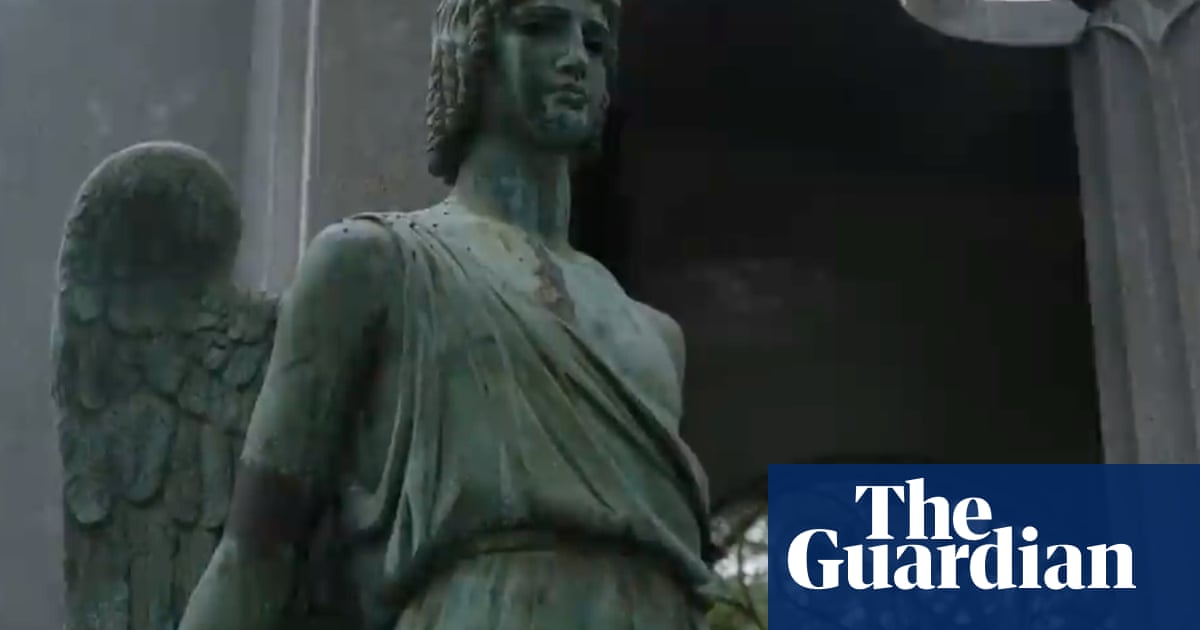A new documentary examining theCatholic clergy molestation scandal in New Orleans– based in part on journalism by the Guardian and its local reporting partner WWL Louisiana – is making its world premiere atLondon’s Raindance film festivalin June.
God As My Witnessis also nominated for best feature-length documentary at the major film festival’s 33rd edition, according to the movie’s director, Lindsay Quinn Pitre.
The producer of the 82-minute film is Michael Brandner Sr, who in 2018 discovered a pile of what were essentially love letters to his younger brother, Scot, from a Roman Catholic priest named Brian Highfill. Scot – who was a teenager when he received the letters – never told anyone about them and died by suicide at age 29 in the early 1990s.
Michael presented the letters to New Orleans’ Catholic archbishop, Gregory Aymond. In a recorded phone call between the men, Aymond told Brandner that the letters were likely grooming material but “weren’t explicit enough” to warrant Highfill’s inclusion on a list released by the archdiocese that identified clergymen faced with substantial allegations of child molestation.
Aymond ultimatelyaddedHighfill to that list in October 2020 after WWL Louisiana and a reporter now at the Guardian questioned the archdiocese about at least three other victims who had reported their own allegations of sexual abuse at the hands of Highfill over the previous 18 years.
God As My Witness in part recounts the experiences of Brandner’s family with Highfill, who died in 2021, and a number of people who endured being sexually molested as children by clergymen while growing up in the Catholic church in New Orleans. It also tells the stories of theattorneyswho have advocated for clergy abuse survivors after the New Orleans church faced so many clerical molestation claims that it filed for federal bankruptcy protection in May 2020.
The case has cost the archdiocese more than $40m in fees but remained unresolved as the 26 June premiere of God As My Witness was announced.
Pitre recently told WWLLouisianathat the film is intentionally left “open ended because this is still a growing process – it’s still being unraveled in front of our eyes”.
Brandner said the clergy abuse survivors seeking to be made whole through the bankruptcy do not include “the ones who didn’t come forward or the ones that are deceased” – his younger brother among them.
“I think Scot is [speaking] right now through me,” Brandner told WWL Louisiana. “I believe that with my entire heart.”
